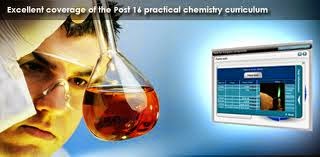(1) IMPLEMENTING
As we know that chemistry is experiment subject and it
always needs a technical skills to perform better experiment. Where implementation
of the observations is much necessary.
WORKING UNAIDED IN A HEALTHY AND SAFE WAY
When it is the case of practically you should work cleanly
and methodically paying proper attention to health and safety precautions. When
learning new skills you may work as a part of group but you will be on your own
when being assessed. Only carry out practical work in the presence of qualified
supervisor.
DEMONSTRATING PRACTICAL SKILL
You will be judged by your skills results which will depend
on the type of experiment you are conducting. Your teacher may make some judgments
based on watching at your work in the laboratory. More significant are the
outcomes of your work such as the yield and purity of products, your
measurements of melting or boiling points, and detail and relevance of your
observation and the accuracy of masses, volumes, temperatures and times.
Measurement, observation and recording of data
If your report you must record measurements with precision
that matches the quality of the equipment that you have used. Masses should be
quoted to the number of decimal places that much the accuracy of the balances
you have used. Similarly, with grade B 50 cm burettes, you should always note
reading to the nearest 0.05 cm^3.
Note: Never write observation and measurement on scraps of
paper that are easy to lose. Include a record of all measurements in your
account of the experiment as well as values calculated from the measurement.
(2)ANALYSING EVIDENCE AND DRAWING CONCLUSION.
This is the stage at which you work out the meaning of your
observation and measurements. Here you take the raw data and present it in ways
that shows you has found out as a result of your practical work.
FORMS OF COMMUNICATION
You should choose ways of analyzing and communicating your
findings which are appropriate to you experiment. Consider including labeled
diagrams, tables, charts and graphs as well as continuous prose.
You will gain credit for using the language of chemistry correctly.
Compare what you write with what you find in textbook or on websites to check
that you are working at the right level for an advanced course.
PROCESSING THE DATA
You should process
the data in quantitative investigations to answer the chemical questions: 'how
fast?' 'How much?' and 'how far?' your analysis may involve calculations. If so
you must show that you understand each step of calculation. Always check that
the number of significant figures in your final answer is consistent with the
precision of your measurements.
ANALYSIS OF MEASUREMENT UNCERTAINTY
In any quantitative investigation you will need to assess the
measurement uncertainty correctly.
Note: Always show the units of physical quantities. Label
the axes of graphs and give a scale with units. Set out all calculations in
full, step by step giving all the detail of your working.
DRAWING CONCLUSIONS.
Here you have to relate your findings to your knowledge and understanding
of chemical theory. You need to convince your teacher, or an examiner, that you
understand the chemical nature of the observation or measurements you are analyzing.
.

.jpg)

.jpg)
.jpg)
.jpg)
.jpg)


.jpg)

.jpg)
.jpg)



